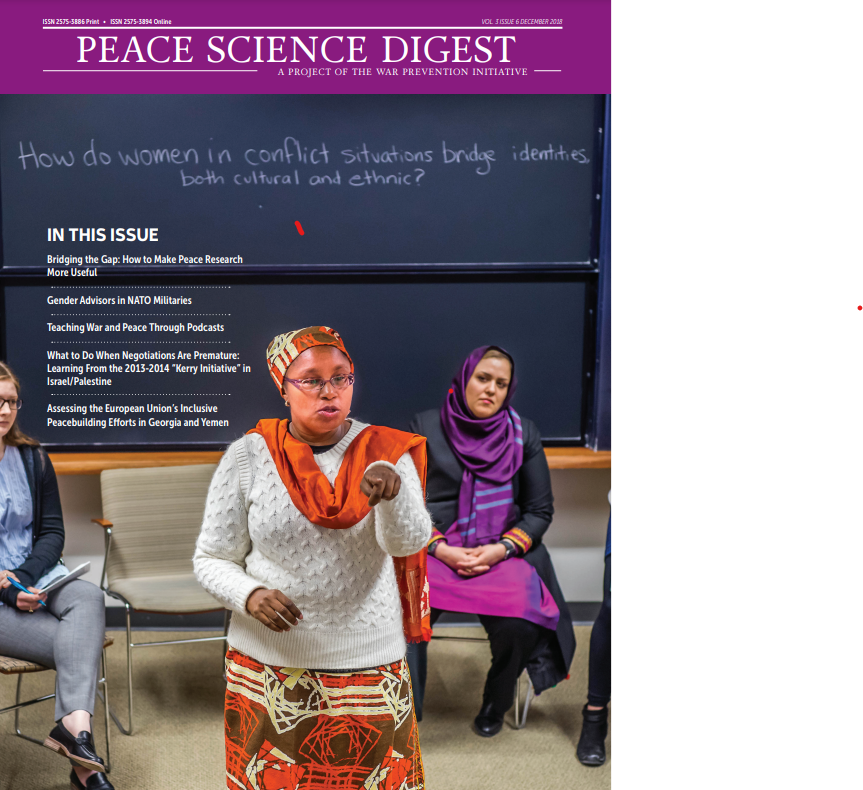Inside this issue, we start with an article that addresses the rationale for the existence of the Digest: the growing communication gap between practitioner and academic communities, and how addressing this gap can lead to more informed and useful research. Next, we look at research on Gender Advisors in militaries and their role in the United Nations’ Women, Peace and Security (WPS) agenda. The third analysis gives us a look into a new course that uses podcasts to help teach complex topics on peace and war, and how emerging technologies can be a useful tool in peace education. We then turn to a case study analysis on the 2013/14 “Kerry Initiative” in Palestine and Israel, exploring the important and delicate role of third parties during conflict negotiation processes. The last analysis addresses the European Union’s efforts to incorporate inclusive peacebuilding projects in Georgia and Yemen and highlights the important “Whole-of-Society” approach that works to include marginalized communities into the peacebuilding process.
Click on the icon below to download Volume 3, Issue 6
For the text-only format of this issue’s analyses, please click on the titles below or visit our Analysis Catalog
- Bridging the Gap: How to Make Peace Research More Useful
- Gender Advisors in NATO Militaries
- Teaching War and Peace Through Podcasts
- What to Do When Negotiations Are Premature: Learning From the 2013-2014 “Kerry Initiative” in Israel/Palestine
- Assessing the European Union’s Inclusive Peacebuilding Efforts in Georgia and Yemen

